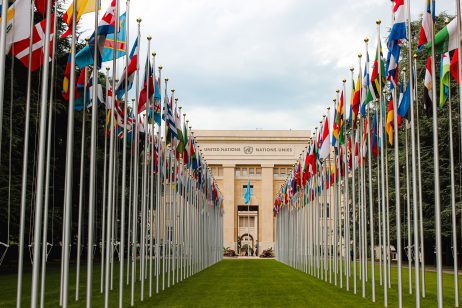
Summary
- UNESCO member countries endorse global rules for ‘ethical AI,’ including clear red lines such as banning the use of AI for social scoring and mass surveillance.
- At the heart of the recommendation is that governments and companies steer clear of dangerous use cases that threaten human rights.
- Contributions by Director of AI Policy and Social Impact, Marek Havrda, build on GoodAI’s research of longer-term impacts of AI on individuals and society at large.
UNESCO’s 193 member countries approved a first-of-its kind global normative instrument in the field of artificial intelligence. This historical text defines the common values and principles and will serve as a guide for the construction of the necessary legal infrastructure to ensure the healthy development of AI.
AI’s growing pervasiveness in our daily lives are delivering remarkable results. From booking flights, steering driverless cars, and personalising our morning news feeds to cancer screening and building inclusive environments for people with disabilities, the technology is also presenting new unprecedented challenges.
Gender and ethnic bias, threats to privacy, dignity and agency, potential for manipulation and decreased mental health count among some of the consequences. Until now, there were no universal standards to provide an answer to these issues.
GoodAI’s Marek Havrda participated in the U.N. text’s development process for a year and half through regional consultations and supporting the joint European Commission position. Contributions focused on strengthening the language surrounding human agency, rights, and fundamental civil and political freedoms, while highlighting the inherent dangers behind human cognitive biases and offering tools for remediation.
Based on his contributions, the Recommendations cover the need to thoroughly test AI systems prior to deployment in the real world, in particular, calling on technologists and deployers to conduct ethical impact assessments and on governments to put in place “strong enforcement mechanisms and remedial actions” to protect human rights.
As an implementation mechanism, the Ethical Impact Assessment could help countries and companies developing and deploying AI systems to identify, alert, and take preventive measures against future negative impacts on individuals, on society and on the environment. This tool could assist in ensuring that ethics are implemented in practice.
UNESCO’s recommendation is “an excellent basis not only for the ethics of current AI technologies, but also for a strong AI of the future,” said Marek Rosa, CEO and CTO of GoodAI. We are proud to have taken part in this endeavor.
Read the full Draft Recommendation here.






[…] Inceptional UNESCO agreement on an ethical framework for AI development – article […]